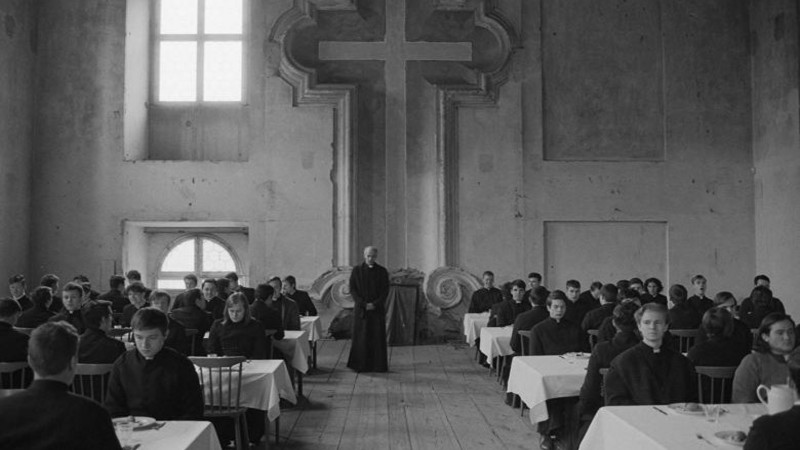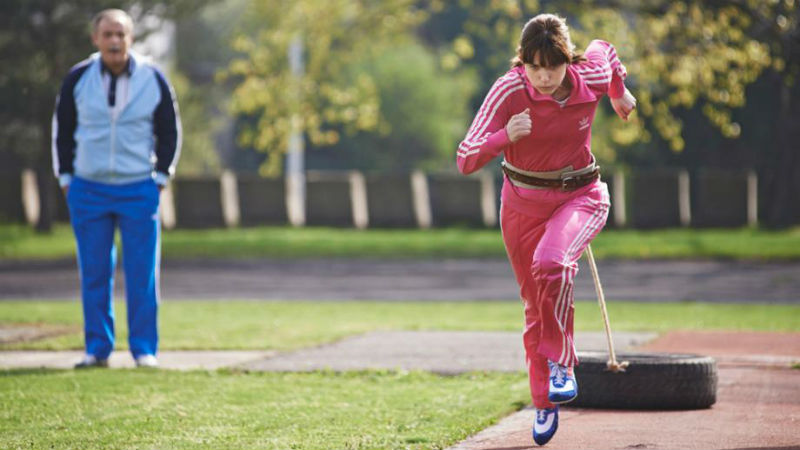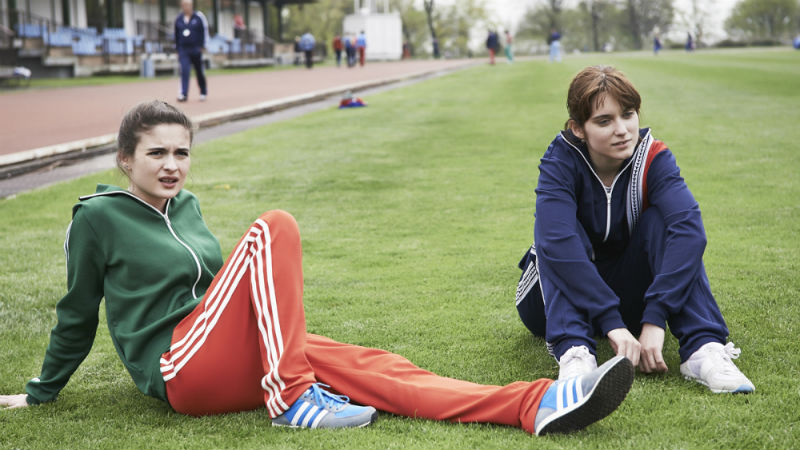QUICK SNAP: LIVE FROM TALLINN
Credit must be given to Occupation for answering a question I had never previously considered: is there actually a good reason to wear a Nazi uniform? A blend of satire and national inquiry, all wrapped up in a one-scene thriller-comedy, the Czech film zigs and zags through one dark and heavy night of the soul.
After Soviet control of Czechoslovakia in 1968, theatre is in crisis mode. Pre-1968, directors were putting on Beckett productions. Now theatre has turned to a more politicised mode, the film taking place entirely after a production of a play lionising the life and death of journalist-turned-resistance leader Julius Fučík. Imprisoned and executed for his communist beliefs, he was turned into a propaganda symbol for the controlling party.
For director Jindrich (Martin Pechlát), drowning his sorrows in the theatre bar, the play was a total failure, featuring “mediocre actors and mediocre direction.” He was once a revered playwright, as student Milada (Antonie Formanová) shows when asking him for help on her student thesis project. She wants to know who a hero is: unlike the Nazi uniform question, this one is left unanswered throughout this black comic thriller.
There’s a touch of Quentin Tarantino here, whether it’s the long dialogue scenes, mix of comedy and violence and the twangy guitars on the soundtrack. While the final twist can be seen a mile away (and is the kind of easy resolution Tarantino would avoid) it still pays off in a deeply satisfying way, showing how resistance is easy to talk about, and often impossible to put into genuine action. The other key influence is closer to home: Miloš Forman’s The Fireman’s Ball (1967), featuring a similar balancing act and an equally gratuitous level of heavy drinking. But while Forman had to sneak his critique under the censors, director Michal Nohejl, along with co-writers Marek Sindelka and Vojtech Masek, is far freer with his lacerating look at the era.
The party turns from a pity-fest into a taut thriller when a Russian commander appears and instantly spices up proceedings. While the Russians are heavily critiqued and stereotyped, the film sets much heavier targets on the Czechoslovakians themselves, who ultimately held little resistance against the Germans. The Russians on the other hand, liberated the country, and saw themselves at this moment of acting in their best interest. Still wearing their Nazi uniform from the earlier play, the film plays upon both Russian and Czech national nightmares. It’s bad taste that achieves fascinating results.
Occupation captures the era well, with colourful clothing, deep-hued lighting, reverb-heavy music and meticulous production design. Essentially a play in film form, the widescreen aspect ratio and careful blocking allow for variation in shots that all take place in the same room, complemented by a game cast who enjoy the opportunity to drink, dance, moan, tease, bully and fight in equal measure. While never reaching genuine hilarity, it’s still an entertaining night in the company of deeply miserable people during one of their most hopeless eras.
Occupation plays in the First Feature section of the Tallinn Black Nights Film Festival, running from 12-28th November.











